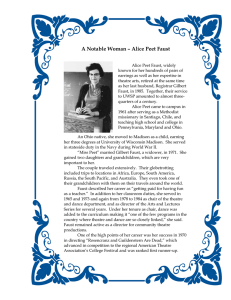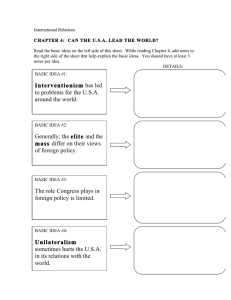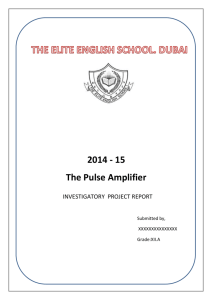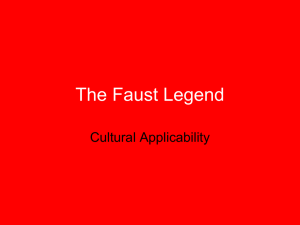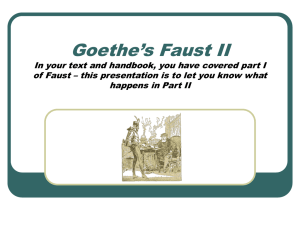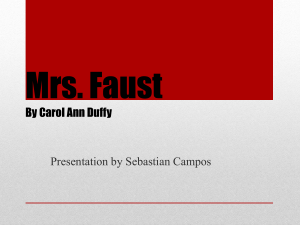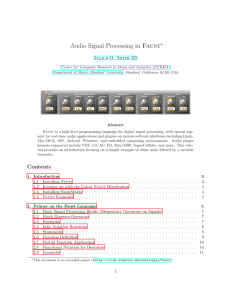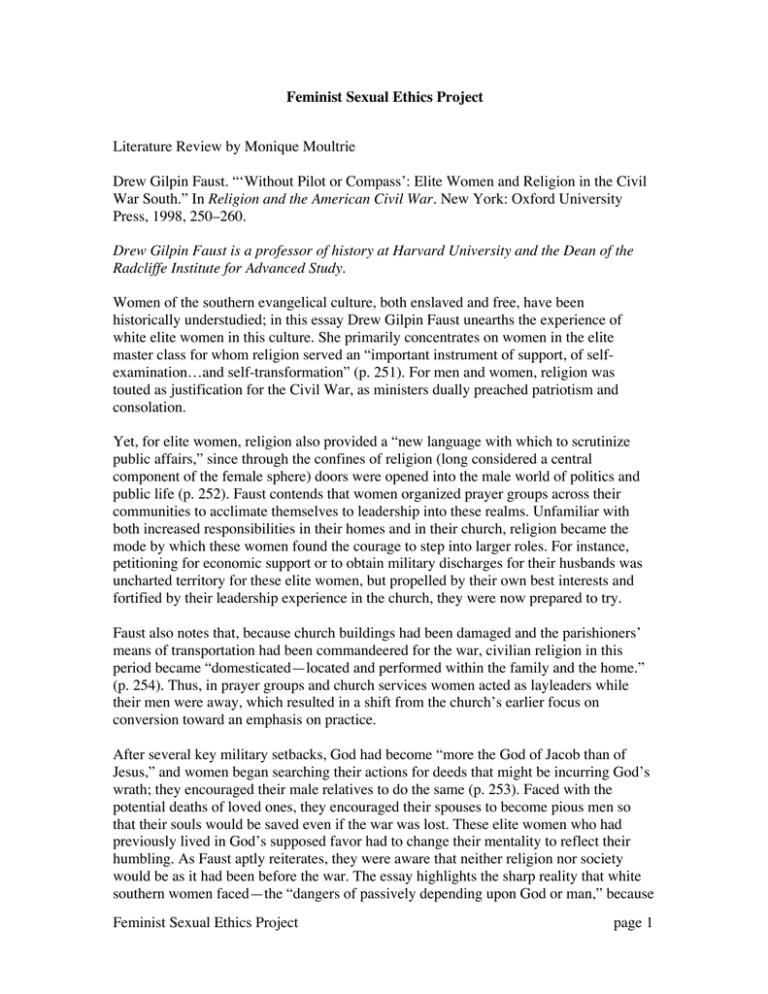
Feminist Sexual Ethics Project
Literature Review by Monique Moultrie
Drew Gilpin Faust. “‘Without Pilot or Compass’: Elite Women and Religion in the Civil
War South.” In Religion and the American Civil War. New York: Oxford University
Press, 1998, 250–260.
Drew Gilpin Faust is a professor of history at Harvard University and the Dean of the
Radcliffe Institute for Advanced Study.
Women of the southern evangelical culture, both enslaved and free, have been
historically understudied; in this essay Drew Gilpin Faust unearths the experience of
white elite women in this culture. She primarily concentrates on women in the elite
master class for whom religion served an “important instrument of support, of selfexamination…and self-transformation” (p. 251). For men and women, religion was
touted as justification for the Civil War, as ministers dually preached patriotism and
consolation.
Yet, for elite women, religion also provided a “new language with which to scrutinize
public affairs,” since through the confines of religion (long considered a central
component of the female sphere) doors were opened into the male world of politics and
public life (p. 252). Faust contends that women organized prayer groups across their
communities to acclimate themselves to leadership into these realms. Unfamiliar with
both increased responsibilities in their homes and in their church, religion became the
mode by which these women found the courage to step into larger roles. For instance,
petitioning for economic support or to obtain military discharges for their husbands was
uncharted territory for these elite women, but propelled by their own best interests and
fortified by their leadership experience in the church, they were now prepared to try.
Faust also notes that, because church buildings had been damaged and the parishioners’
means of transportation had been commandeered for the war, civilian religion in this
period became “domesticated—located and performed within the family and the home.”
(p. 254). Thus, in prayer groups and church services women acted as layleaders while
their men were away, which resulted in a shift from the church’s earlier focus on
conversion toward an emphasis on practice.
After several key military setbacks, God had become “more the God of Jacob than of
Jesus,” and women began searching their actions for deeds that might be incurring God’s
wrath; they encouraged their male relatives to do the same (p. 253). Faced with the
potential deaths of loved ones, they encouraged their spouses to become pious men so
that their souls would be saved even if the war was lost. These elite women who had
previously lived in God’s supposed favor had to change their mentality to reflect their
humbling. As Faust aptly reiterates, they were aware that neither religion nor society
would be as it had been before the war. The essay highlights the sharp reality that white
southern women faced—the “dangers of passively depending upon God or man,” because
Feminist Sexual Ethics Project
page 1
for the first time they felt unprotected by God and circumstances (p. 258). Yet, she
concludes, they came through the situation changed, and they subsequently changed the
postwar country. Thus, she observes the burgeoning of a new independence and a time
when “women themselves would feel compelled to serve as both pilot and compass” (p.
258).
http://www.brandeis.edu/projects/fse/
Feminist Sexual Ethics Project
page 2



